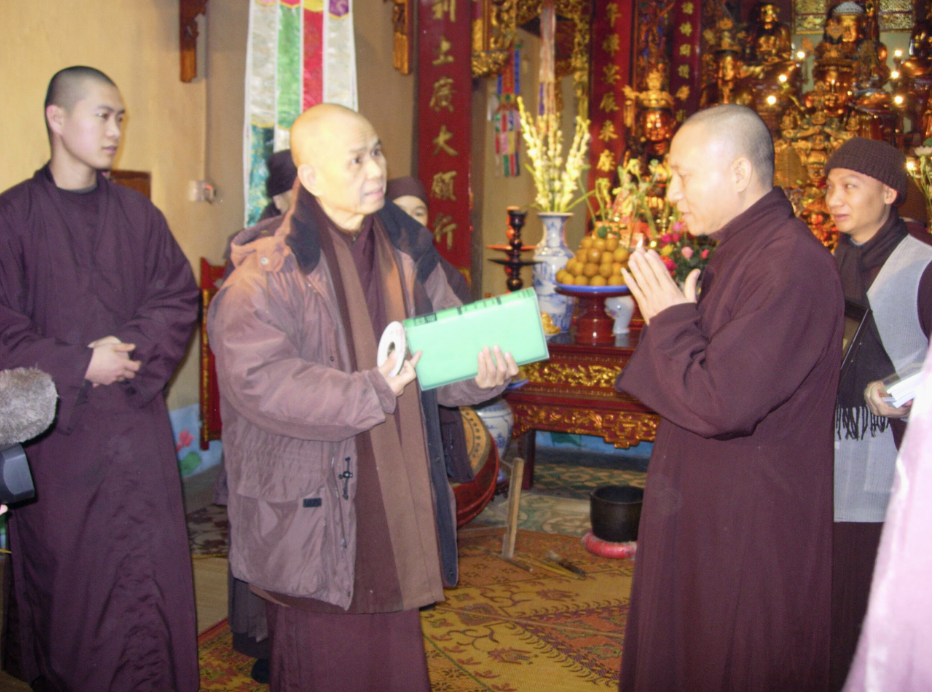Monday, July 7, we will meet online.
New to sangha?
This Monday we are offering an optional Newcomers Orientation.
Learn more and sign up here
Dear friends,
This week, we will meet Monday evening, July 7th, from 7-8:30PM EDT online; Wednesday morning, July 9th, from 7-8AM EDT in person at our meditation space (3812 Northampton Street NW); and Friday, July 11th, 12-1PM EDT online.
Camille will facilitate on Monday evening, and we will continue our summer reading of the book The Art of Power by Thich Nhat Hanh (Thay). This week, if you are able, we invite you to read Chapter 2: Handling Power Skillfully (pages 31-40), and Chapter 3: The Art of Mindfulness (pages 41-63).
In Chapter 2 of the book, Thay talks about using power skillfully so that we don’t create more suffering. As we begin to cultivate the five spiritual powers as identified in Chapter 1, faith, diligence, mindfulness, concentration, and insight, we can become better leaders and encourage more understanding and happiness. In Chapter 2, in order to become true leaders, Thay offers three virtues to follow: “the virtue of cutting off, the virtue of loving, and the virtue of insight.”
The first virtue of “cutting off” is like letting go. To let go of our anger, fear, worry, and delusion will help to bring more ease and lightness to transform our own suffering. As we practice letting go, we will be better able to listen and respect others. In doing so, others will respect us, and I believe this is what Thay means when he talks about the true power of leadership and handling power with skillfulness and mindfulness.
Thay continues to share the virtues on page 33:
A good leader also has the virtue of loving. You have the capacity to be affectionate, to accept, forgive, and embrace the other person with loving kindness and compassion. When you have the power, you are happy and people respect you – not because you shout at them or scold them, but because you offer care and compassion. People who lack compassion, love, and forgiveness suffer a lot. When you can forgive, when you can accept, you feel light, you can relate to other living beings. Without compassion, you are utterly alone. That is why compassion is the ground of happiness. If our political and business leaders can cultivate this virtue, this power of loving, they will not misuse other kinds of power: money, fame, and position in society. They will not make themselves and others unhappy.
A good leader also has to have the virtue of insight… Wisdom or insight is born from looking deeply. A genuine leader has the wisdom to show us the path out of suffering. You may be in a difficult situation, caught in confusion, and without direction. When you come to a true leader, he can show you the way. Very quickly you will see a way out because he has wisdom.
When we have insight, we can easily take care of difficulties, tension, and contradictions… So the third virtue is to be able to look deeply to gain insight, so we can resolve our difficulties and help other people.
Practicing with the five spiritual powers and the three virtues can bring spiritual authority to politicians, employers, teachers, parents, and all who are in positions of authority, and can cultivate more peace. It can also bring happiness in ourselves and others and prevent misuse of power and more suffering. The Buddha left his family, whose political control and power left him unsatisfied; the Buddha was seeking to understand suffering and true happiness.
In Chapter 3, Thay shares with us how the practice of mindfulness can help us first focus on ourselves with understanding and love and then be there for others. He shares:
Mindfulness is the capacity to be present with one hundred percent of ourselves. The energy of mindfulness enables us to recognize the presence of what is. What is there is yourself, what is there is your loved ones. If you aren’t capable of being in the here and now, you won’t be able to recognize yourself, your happiness, or your suffering. Without your full presence, you won’t be able to recognize others, and they will feel unseen, misunderstood, and unloved. They will begin to suffer, and that suffering in turn will make you suffer more. Without mindfulness, we can’t help ourselves or our loved ones or succeed in our workplace. Without mindfulness, any power we have will be fleeting and ultimately unsatisfying.
Lastly, in chapter 3 Thay shares the Five Mindfulness Trainings, which are “essential for learning to handle our power skillfully, for cultivating true power, spiritual power. They are the heart of mindfulness practice.” These trainings are meant to protect and support us. For me, they guide me in my everyday life, especially when I feel despair with what is going on in the world or when I am feeling lost and lonely. They are always there for me.
On Monday night online we can practice sitting and walking meditation, singing, and welcoming one another. We may discuss our spiritual practice as shared in the book and how that might help with handling power with skillfulness and mindfulness at home or at work. We can also discuss any part of our practice or daily life that feels needed.
I look forward to seeing and hearing from you.
With much love and gratitude in being in community with you,
Camille

